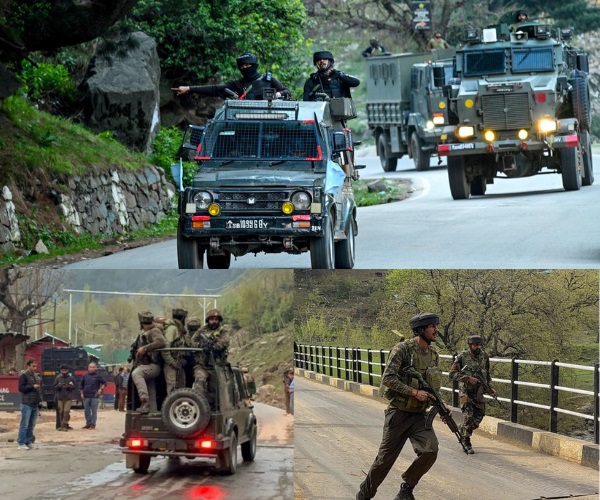
New Delhi: At an all-party meeting called by the central government on Thursday 24th April, to discuss the steps to be taken in the wake of the Pahalgam terror attack in Jammu and Kashmir, all political parties showed unity and expressed their support for standing with the government in the fight against terrorism.
"Hum sab saath hai, action lo" (We are all together, take an action) was what leaders of various political parties told the government during the debate. Sources said that the government acknowledged that there was an intelligence and security lapse at the meeting and said that appropriate retribution was needed.
Even when they said 'Allahu Akbar', the minds of the criminals did not melt
Pune: "We were spending time with family members in the meadows of Pahalgam. Suddenly, terrorists came from inside the forest and opened fire indiscriminately. Even though some women, including me, removed the bindi from their foreheads and chanted 'Allahu Akbar', the criminals did not care. They shot my husband and his friends dead right in front of my eyes" sobbed Sangeeta Ganabothe from Pune.
Sangeeta, who lost her husband Kaustubh Ganabothe in a terrorist attack targeting tourists in Baisaran, Pahalgam, Anantnag district of Kashmir on Tuesday, opened up about the horrific situation she faced there. "The terrorists who came to the park with guns asked them to recite 'Kalma'. However, our attempt to hide our religion failed. Even when we removed our bindis and said 'Allahu Akbar', their hearts did not melt. They kept firing at us" she said, sobbing.
India retaliates against Pahalgam attack

India has severed diplomatic relations with Pakistan following the massacre by terrorists in Pahalgam, Jammu and Kashmir. Major diplomatic actions have been taken, including the expulsion of diplomatic personnel, instructions to Pakistani citizens to leave the country, visa cancellation, and suspension of the Indus Water Treaty.
Indus Water Treaty: India has suspended the Indus Water Treaty, which was signed between India and Pakistan in 1960 and covers the Ravi, Beas, Sutlej, Indus, Jhelum and Chenab rivers. Due to India's action, the water flowing from the Indus River to Pakistan has stopped. As a result, there may be a water crisis in Pakistan. Irrigated crops may dry up. There may be a shortage of food and it may also affect exports. This is said to cause economic distress in the neighboring country.
Wagah border closure: The Centre's move to close the Attari-Wagah border will hamper trade between the two countries. The closure of the international border checkpoint will close the country's only land port, which will halt trade between India, Pakistan and Afghanistan.
In the last two years, 6,871 goods vehicles have moved through the Atari-Wagah border. A trade worth Rs 3,886 crore has been transacted. 71,563 passengers have travelled between the two countries.
The Attari-Wagah border was a major route for import-export trade between India and Pakistan. Soybean, chicken feed, vegetables, chillies, dry fruits, gypsum, cement, stone, glass, various herbal products were being transported. Trade between India and Afghanistan has also been hit due to the border closure.
























